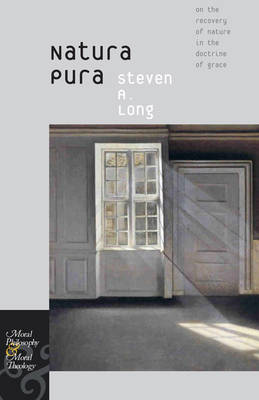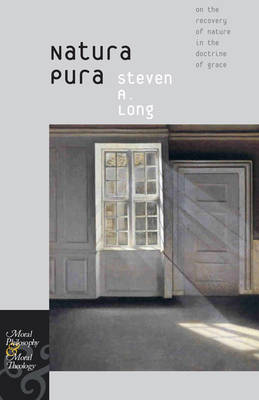
- Retrait gratuit dans votre magasin Club
- 7.000.000 titres dans notre catalogue
- Payer en toute sécurité
- Toujours un magasin près de chez vous
- Retrait gratuit dans votre magasin Club
- 7.000.000 titres dans notre catalogue
- Payer en toute sécurité
- Toujours un magasin près de chez vous
Description
From speculative theology to the exegesis of Aquinas, to contemporary North American philosophy and Catholic social and ethical thought, to the thought of Benedict XVI, this work argues the crucial importance of the proportionate natural end within the context of grace and supernatural beatitude. Long argues that, in the effort to avoid naturalism, Henri de Lubac unwittingly consummated the loss of nature as a normative principle within theology, both doctrinally and exegetically with respect to the teaching of Aquinas. The author argues that this constitutes an understandable but grave error. De Lubac's view of the matter was adopted and extended by Hans Urs von Balthasar in The Theology of Karl Barth, in which Balthasar argues that Aquinas could not even consider pure nature because it was "impossible for him even to make the conceptual distinction implied by this problem," a view contradicted by Aquinas's text. Long argues that in The Theology of Karl Barth, Balthasar's account evacuates nature of its specific ontological density and treats it as "mere createdness as such," a kind of dimensionless point terminating the line of grace. Given the loss of natura within theological method, its recovery requires philosophic instrumentalities. In its third chapter this book argues that by reason of its lack of any unified philosophy of nature or metaphysics, the analytic thought so widespread in Anglophone circles is merely a partial metaphilosophy and so cannot replace the role of classical Thomism within theology. The fourth chapter argues against those who construe affirmation of a proportionate natural end as equivalent to social Pelagianism or minimalism in the public square, engaging the work of Jacques Maritain, Jean Porter, and David Schindler, Sr. In an appendix, the author examines the early thought of Cardinal Ratzinger / Pope Benedict XVI, and its development toward the Regensburg Lecture.
Spécifications
Parties prenantes
- Auteur(s) :
- Editeur:
Contenu
- Nombre de pages :
- 294
- Langue:
- Anglais
- Collection :
Caractéristiques
- EAN:
- 9780823231058
- Date de parution :
- 28-04-10
- Format:
- Livre relié
- Format numérique:
- Ongenaaid / garenloos gebonden
- Dimensions :
- 157 mm x 231 mm
- Poids :
- 566 g







